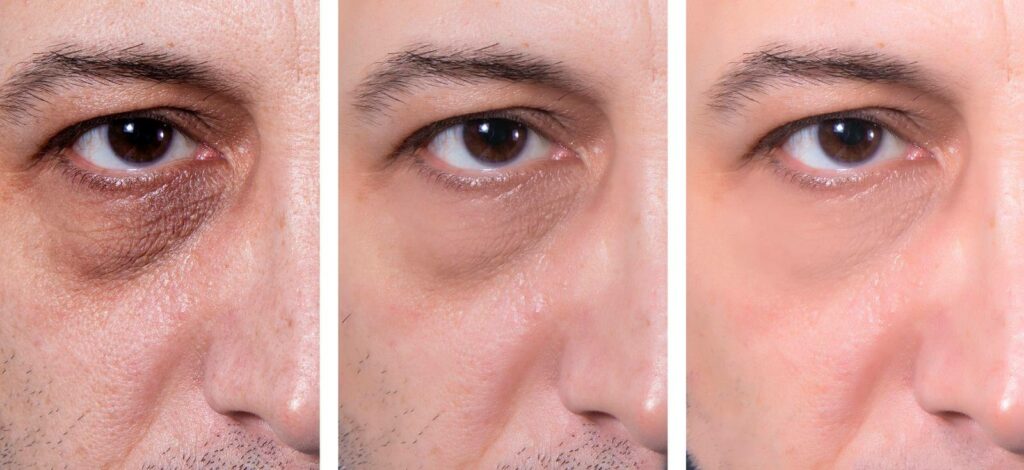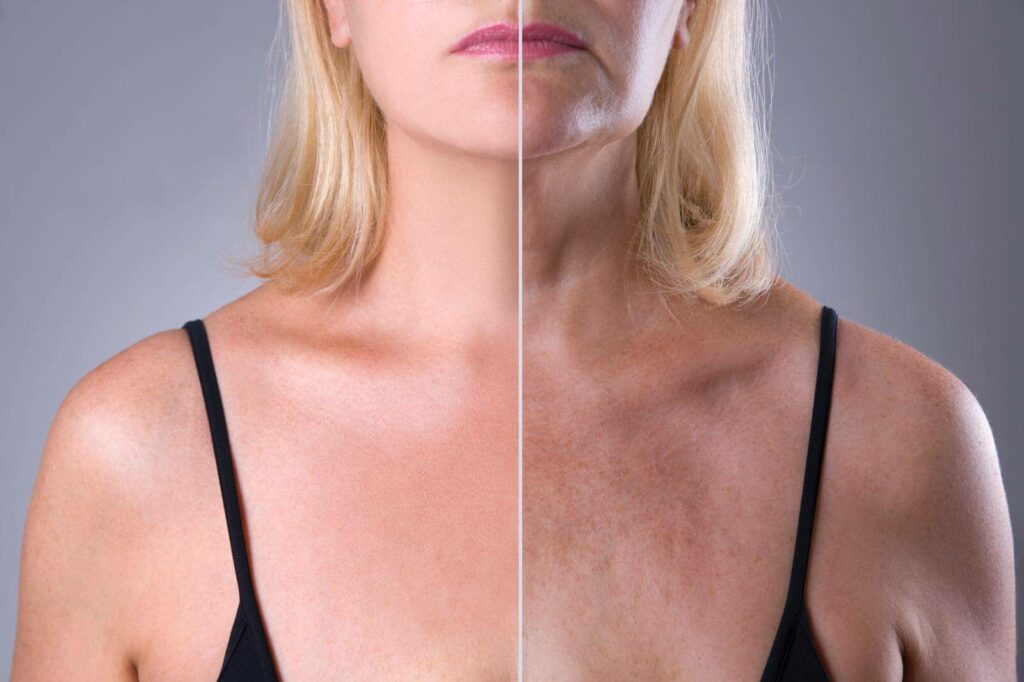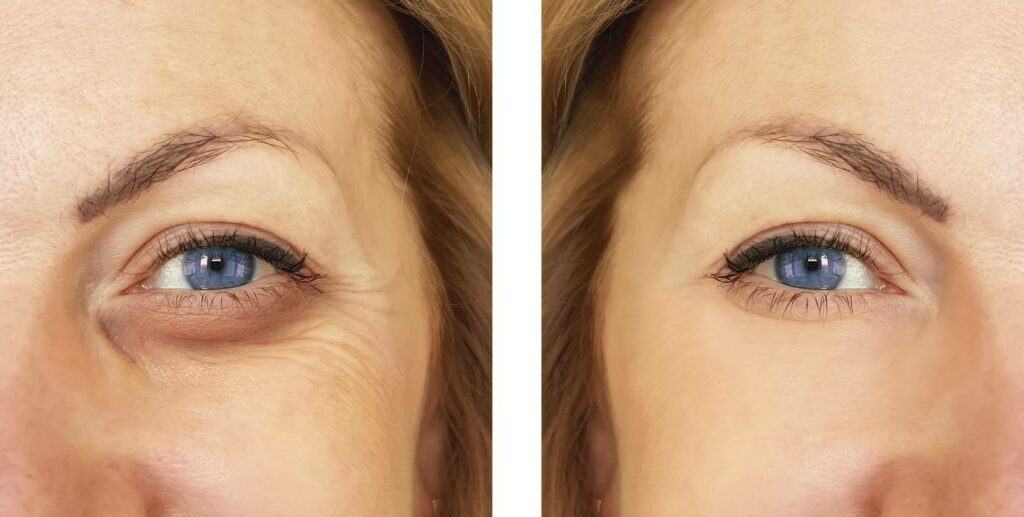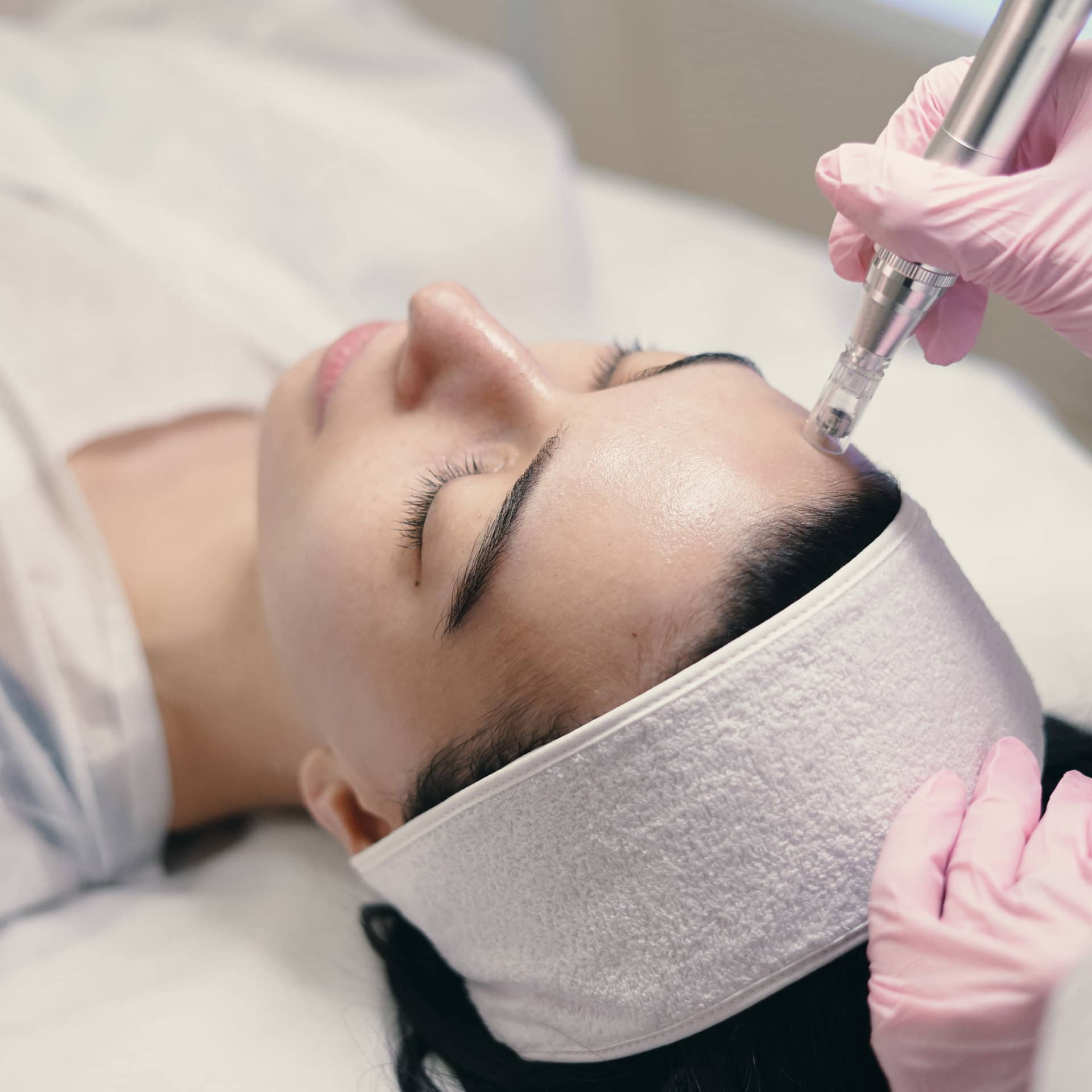POLYNUCLEOTIDES
Polynucleotides, a prominent inclusion in the top non-invasive aesthetic treatments of 2024, have quickly become a favored solution in aesthetic medicine.
In aesthetic medicine, polynucleotides are harnessed for their regenerative and hydrating properties, making them highly sought-after in rejuvenating injectable treatments.
At a fundamental level, polynucleotides stimulate tissue repair and boost skin hydration. Their ability to bind to water molecules and their propensity to stimulate cell growth and repair make them incredibly effective in addressing common concerns such as skin hydration, elasticity, and overall skin health.
Consequently, they are integral to treatments targeting skin rejuvenation, anti-aging processes, and scar reduction, offering a non-invasive solution to common aesthetic concerns.
Moreover, polynucleotides have shown promising results in promoting collagen synthesis, further enhancing skin elasticity and firmness.
Polynucleotides reduce fine lines and wrinkles by encouraging collagen production, providing a more youthful and revitalized appearance.
In addition to their regenerative properties, polynucleotides have also been found to have antioxidant effects, protecting the skin from harmful free radicals and environmental damage.
This antioxidant activity helps to improve the overall health and vitality of the skin, contributing to a radiant and glowing complexion.
Polynucleotides’ multifaceted benefits continue revolutionizing aesthetic medicine, offering a comprehensive and holistic approach to skin rejuvenation and anti-aging.
As research and technology advance, the applications of polynucleotides in aesthetic medicine are expected to expand, providing even more innovative and effective solutions for patients seeking non-invasive treatments.
As for FDA approval, while polynucleotides are not directly approved or disapproved by the FDA, they are used in several FDA-approved treatments. The use of polynucleotides in aesthetic treatments is contingent upon the individual product’s FDA status.
For instance, they are a key component in certain FDA-approved dermal fillers and rejuvenating injections, further cementing their significance in the industry.
The frequency of polynucleotide treatments varies depending on the individual’s specific needs and the nature of the treatment. Typically, injections are administered over a particular time frame, ranging from 4 to 6 weeks apart.
This is generally followed by maintenance treatments every 6 to 12 months, ensuring sustained results. With their ability to significantly improve skin health and appearance, polynucleotides are set to remain at the forefront of aesthetic trends



Frequently Asked Questions
So, what are polynucleotides?
Don’t worry, it’s not literal salmon sperm that’s injected. Polynucleotides are filtered, purified and sterilised natural DNA fractions derived from the sperm. Classed as a ‘biostimulator’, rather than artificially plump skin like a traditional dermal filler would, polynucleotides work as a nourishing medicine for skin cells.
Once inside, the natural DNA fractions mirror human DNA and get to work on boosting collagen and elastin, upping hydration and thickening the epidermis naturally thanks to stimulating your body’s fibroblast production. Furthermore, polynucleotides are antioxidants with anti-inflammatory properties to lower skin inflammation.
Polynucleotides aren’t even a new discovery. Before entering the aesthetics arena, they had a long medical track record of successfully treating issues like knee osteoarthritis and chronic wounds.
What can polynucleotides treat?
Aesthetically, polynucleotides are used around the eye area, whole face, neck or décolleté to improve the appearance of aging skin.
Plumping fine lines and wrinkles aside, since polynucleotides are regenerative and anti-inflammatory, the injectable can also be used to treat skin conditions like scarring, acne, rosacea, stretch marks and hyperpigmentation.
What are the benefits of polynucleotides?
The good news is that science backs up the efficacy of polynucleotides as an aesthetic treatment. One 2021 Italian study revealed that over 80% of participants reported an improvement on their face, periocular area, décolleté and neck, hands, scalp, and stretch marks. It concluded by saying, “The expert consensus illustrates the value of intradermal PH HPT™ as biostimulatory boosters for priming and revitalization of face and body skin thanks to their efficacy on dermal cells.”
If firmer skin, diminished eye bags, smoother texture and even skin tone with reduced pigmentation marks are something you’re seeking, polynucleotides could be for you.
Also, if you’re averse to the idea of dermal fillers or Botox, polynucleotides are a more natural skincare solution that works at a therapeutic level, rather than by volumising your skin artificially.
Do polynucleotides treatments carry any risks?
Very few. The aforementioned Italian study stated that PN‐HPT™‐based medical devices are a safe and effective aesthetic treatment strategy for skin rejuvenation, revitalization, and toning of the skin on face or body.
How much does a polynucleotides treatment cost?
Polynucleotides injections can be purchased as one-off sessions, but a course of three treatments is recommended to obtain optimal results. Your practitioner will then suggest a maintenance programme that will enable you to maintain the benefits and the results.
Pricewise, it’s more expensive than Botox, with a single 2ml session costing anywhere between £250 – £450.
Our prices
Before / After treatment
To see our fantastic results, have a look at our before and after gallery.
Discover our galleryFeel your best, the French Touch will enhance your natural beauty!
Learn more about Dr Philippe Hamida-Pisal
RELATED TREATMENTS

Facial Rejuvenation
Mesotherapy is a safe, natural alternative to invasive cosmetic procedures.

